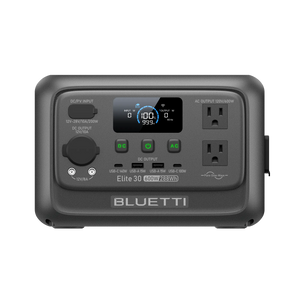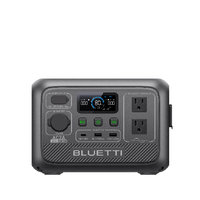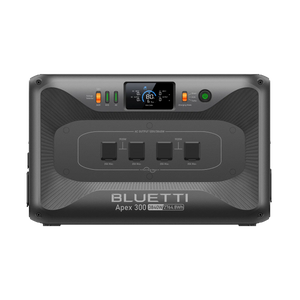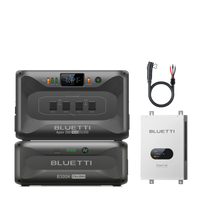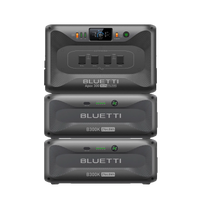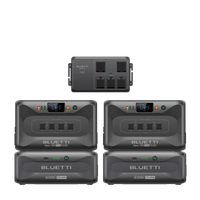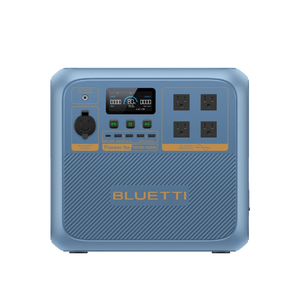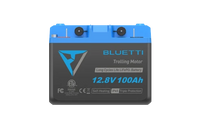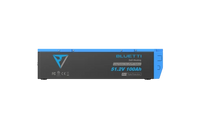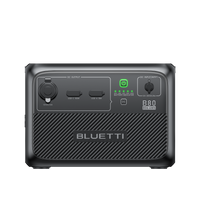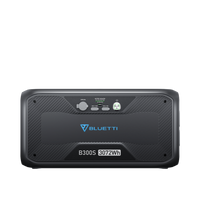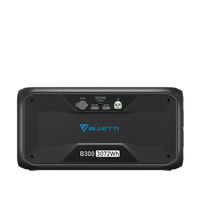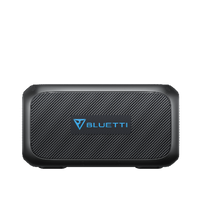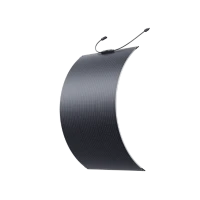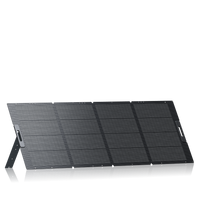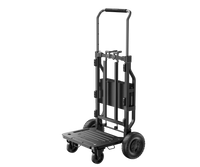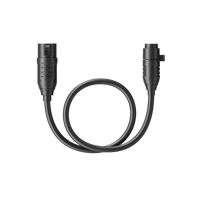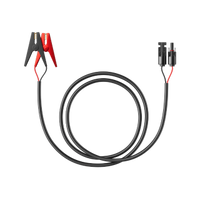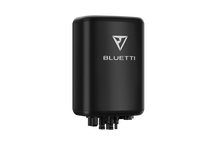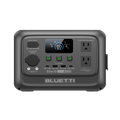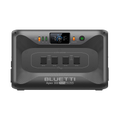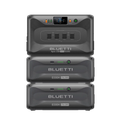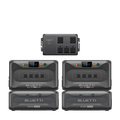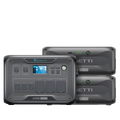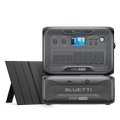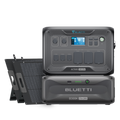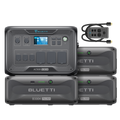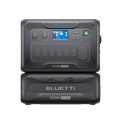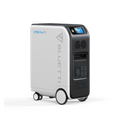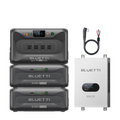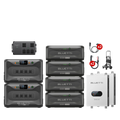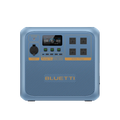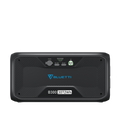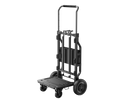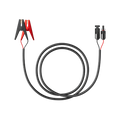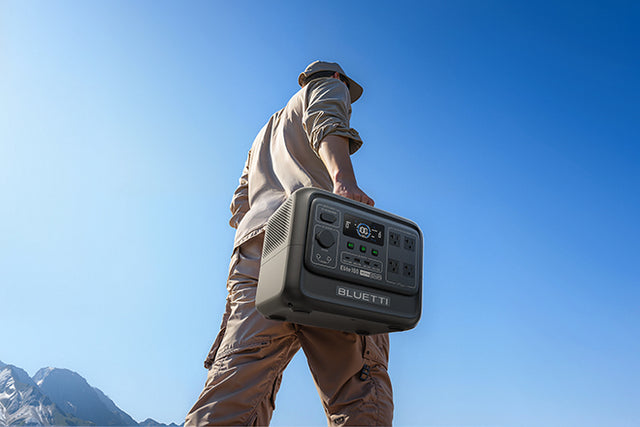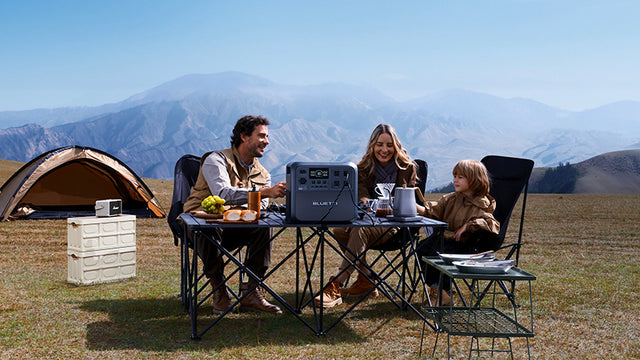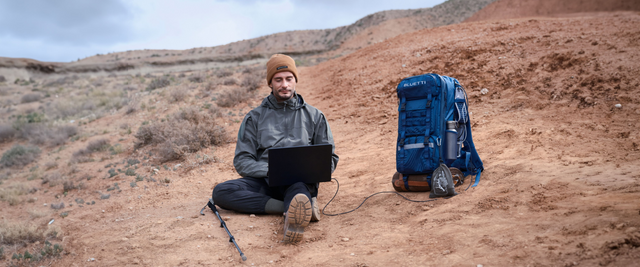Your cart is empty
Shop our productsThe world of healthcare is constantly evolving, with new technologies emerging every day to address the unique challenges facing our communities. One such challenge is delivering medical care to remote areas where access to electricity can be limited or non-existent. But what if we told you that the sun's power could be harnessed to overcome this obstacle?
Well, portable solar generators are revolutionizing how we approach healthcare in remote areas, providing a sustainable, reliable power source to support medical equipment and services. Keep reading as we highlight the transformative potential of portable solar generators for remote healthcare and their positive impact on communities worldwide.
Portable Solar Generators and Their Benefits for Remote Healthcare
Portable solar generators are like small power stations that use the energy from the sun to create electricity. They store this energy in a battery, which can power devices or appliances. They are easy to carry and use in places without access to traditional power sources.
These handy devices offer many benefits that make them an ideal choice for healthcare providers who need to operate in remote areas. Some of the most prominent benefits include the following:
Improving Access to Medical Care
Let's talk about how portable solar generators can improve access to medical care. In remote communities, patients often do not have access to essential medical services due to the lack of electricity. With a portable solar generator, healthcare providers can set up mobile clinics and medical facilities in remote areas, providing patients with the care they need, regardless of where they live.
Providing Reliable and Sustainable Energy
One of the best things about portable solar generators is that they use renewable energy from the sun. Unlike traditional generators that run on fossil fuels, solar generators are environmentally friendly and reliable. This means that healthcare providers can keep their facilities up and running without worrying about supply chain disruptions and price fluctuations that come with using fossil fuels.
Reducing Dependence on Fossil Fuels
Healthcare providers can reduce their dependence on fossil fuels by using solar generators, which is good news for the environment and their budgets. Traditional generators require fuel, which can be expensive and difficult to transport in remote areas. On the other hand, solar generators do not require fuel or regular maintenance, saving healthcare providers money on energy costs over time.
Enhancing Disaster Preparedness
Another advantage of portable solar generators is that they help healthcare providers prepare for natural disasters. In emergencies like hurricanes, floods, and earthquakes, traditional energy sources can be disrupted, leaving healthcare providers without the power they need to provide critical medical care. But with portable solar generators, healthcare providers can set up temporary medical facilities and continue to provide care, even in the aftermath of a disaster.
Cost Savings
While the initial investment in a solar generator may be higher than that of a traditional generator, the ongoing costs of operating a solar generator are much lower. Because solar generators do not require fuel or regular maintenance, and they have a much longer lifespan than traditional generators, healthcare providers can save significant amounts of money over time. And those savings can be reinvested into providing even better care for patients.
Applications of Portable Solar Generators in Remote Healthcare

Here are some of how portable solar generators can be used for remote healthcare operations:
Mobile Clinics
One of the applications of portable solar generators is in the healthcare industry. This has become a necessity for most hospitals and clinics to be able to operate at all times. In fact, some mobile clinics have been using portable solar generators for quite some time now, thanks to their ability to run on solar power alone.
Mobile clinics are an important part of modern healthcare. They provide medical services to people who live in remote areas and otherwise would not have access to them. They also help reduce travel time and costs because patients can get treatment nearby instead of going elsewhere.
The main purpose of mobile clinics is to provide primary health care services needed by communities in remote areas, such as rural villages and favelas. Mobile clinics usually serve populations with no access to health care facilities or limited access due to poor infrastructure or geographical location, such as mountainous regions.
Telemedicine
One cool way to use these generators, similar to mobile clinics, is for telemedicine. That is when medical pros use technology to help people without being in the same room. Telemedicine is a technology that allows patients to consult with doctors and specialists without leaving their homes. With this technology, people can work remotely and have access to the best medical care, even if they live in remote areas where it is difficult to travel or cannot afford expensive transportation.
This technology reduces the number of road accidents caused by people who have no choice but to travel long distances in bad weather conditions. In remote areas, telemedicine can diagnose patients and provide them with medical advice. It can also be used for real-time monitoring of patients with chronic diseases such as diabetes or hypertension who need regular monitoring and medication adjustments based on their health status.
The use of solar generators for telemedicine allows healthcare workers to connect solar panels directly to their portable devices, such as laptops or tablets, which eliminates the need for electrical outlets. This provides them with unlimited electricity so they can work continuously even if there is no regular power source. That means patients can get help without going anywhere, which is way easier and cheaper.
Emergency Response
Emergency response may not be the most common use of portable solar generators, but it is becoming more popular. When a disaster strikes, hospitals are often the first places people look for treatment. Unfortunately, most hospitals do not have backup power sources that can allow them to function without grid electricity. This means that when disaster strikes, hospital staff must rely on diesel-powered generators or other fuel sources to keep their facilities running.
Thankfully, many portable solar generators are available on the market that can provide continuous power during emergencies. These units are ideal for ensuring that hospitals have reliable electricity during a disaster to continue providing care to their patients.
Factors to Consider When Choosing a Portable Solar Generator for Remote Healthcare
Choosing a portable solar generator for remote healthcare can be challenging, but knowing what to look for can be a smooth sailing process. Here are some important factors to consider when choosing a portable solar generator for remote healthcare:
Power Capacity
First of all, you need to think about the power capacity. Your generator should handle all the medical equipment you will be using so you are not left without power when you need it the most. Look at what you need to power and choose a generator up to the task. Some generators may have a maximum power output, so check that also.
Battery Type and Capacity
Next up is the battery, which is the heart of the generator. Choosing the right type and capacity is important for keeping everything running smoothly. Lithium-ion batteries are a great choice for portability, as they are lightweight and can last a long time. But don't just settle for any battery. Get one with enough juice to keep your equipment powered up.
Weight and Portability

Weight and portability are also key considerations. You do not want a generator that is too heavy or difficult to move around, especially if traveling to remote locations. Look for generators that are easy to carry, with handles or wheels to make things easier. You might also want to consider the size of the generator and how easily it can fit into your vehicle or backpack.
Durability, Reliability, and Weather Resistance
When it comes to durability and reliability, buy a generator that can withstand tough conditions and frequent use and comes with sturdy construction and a reputation for lasting a long time. This way, you would not be stuck with a broken generator in the middle of nowhere. Check reviews and ratings from other users to get an idea of a generator's reliability.
Plus, when you are out in the wild, you never know what weather you will encounter. For this reason, only consider the generators with a good IP rating to ensure they are protected from the elements. Some generators may be waterproof, dustproof, or able to withstand extreme temperatures, so choose one that is appropriate for the conditions you will be facing.
Challenges and Limitations of Portable Solar Generators for Remote Healthcare
As discussed, portable solar generators are eco-friendly and renewable energy sources that can provide power to medical equipment, lighting, and communication devices. However, some challenges and limitations are associated with them that need to be considered before they can be widely adopted.
Limited Power Capacity
Portable solar generators may not have enough power capacity to supply your needs. They can be designed for smaller applications such as charging cell phones or powering small electronics. For example, if you need to run an incubator while a patient is being treated in the emergency department (ED), it would be difficult with a portable solar generator alone because it requires high-wattage electricity and high current draw.
Dependence on Weather Conditions
Portable solar generators are dependent on weather conditions, which can be unpredictable in remote areas. In cloudy or rainy conditions, the amount of energy produced by solar panels can be greatly reduced, making it difficult to rely on solar generators as the sole power source. Moreover, extreme temperatures can also affect the performance of solar generators, further limiting their usefulness in remote healthcare facilities.
Revolutionizing Medical Care with Portable Solar Power
There are still a lot of strides being made in order for solar generators to become the absolute solution for difficult-to-reach populations. It is clear that there are some real benefits to be realized here from both an economic and an environmental perspective. We will likely see increased investment in this technology in the years to come.
As a result, it will become easier to provide portable power solutions to even the most remote areas. It is hard to predict how this will affect patient care worldwide, but if growth continues at its current pace, these kinds of solar power solutions will revolutionize medical care throughout the developing world.
Check out these portable solar generators at Bluetti to power your remote healthcare facility.
Shop products from this article
Be the First to Know
You May Also Like

Deadly Flooding Devastates U.S. South and Midwest — What You Need to Know

BLUETTI Teams Up with Leave No Trace to Power Sustainable Outdoor Adventures

